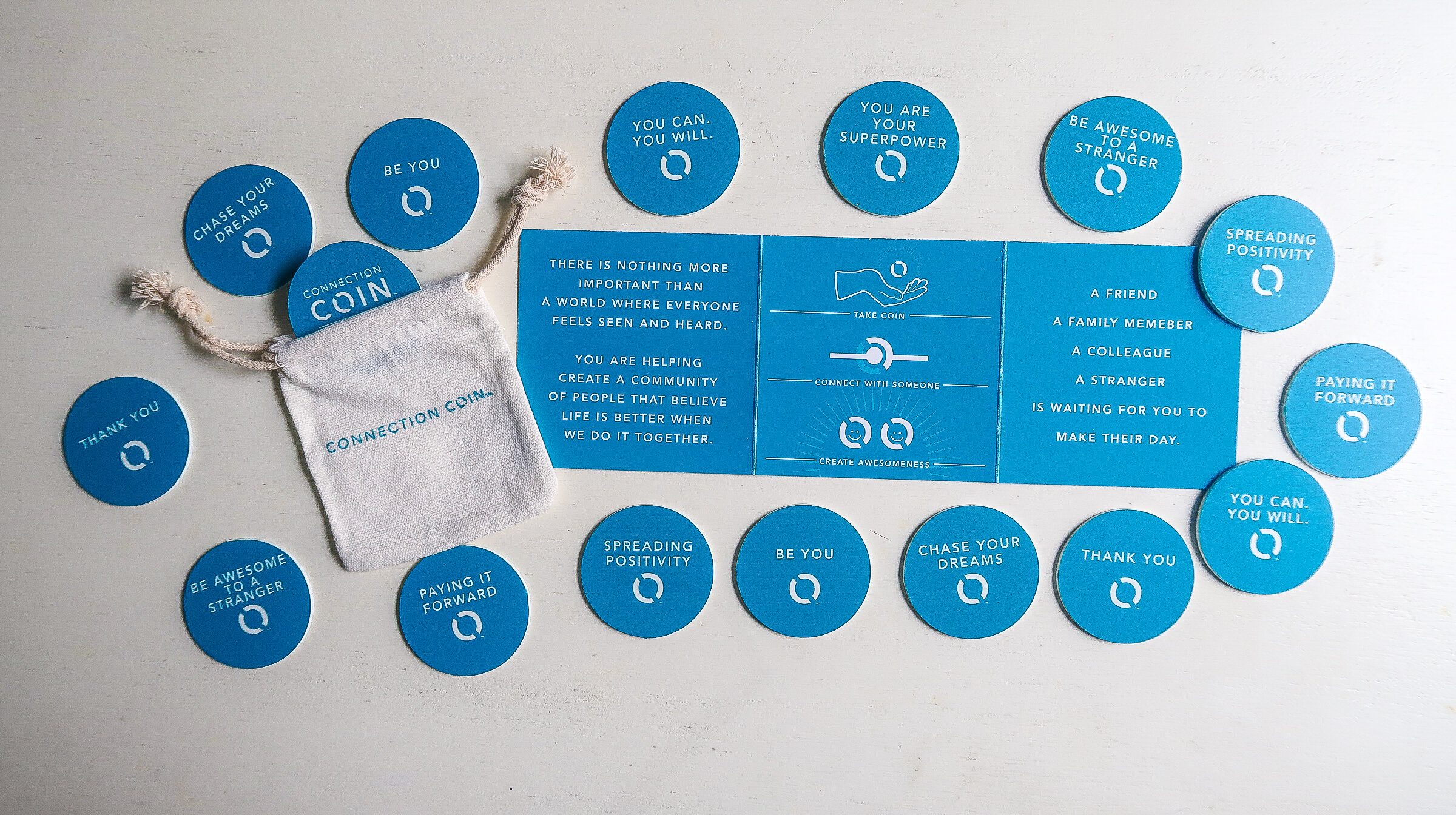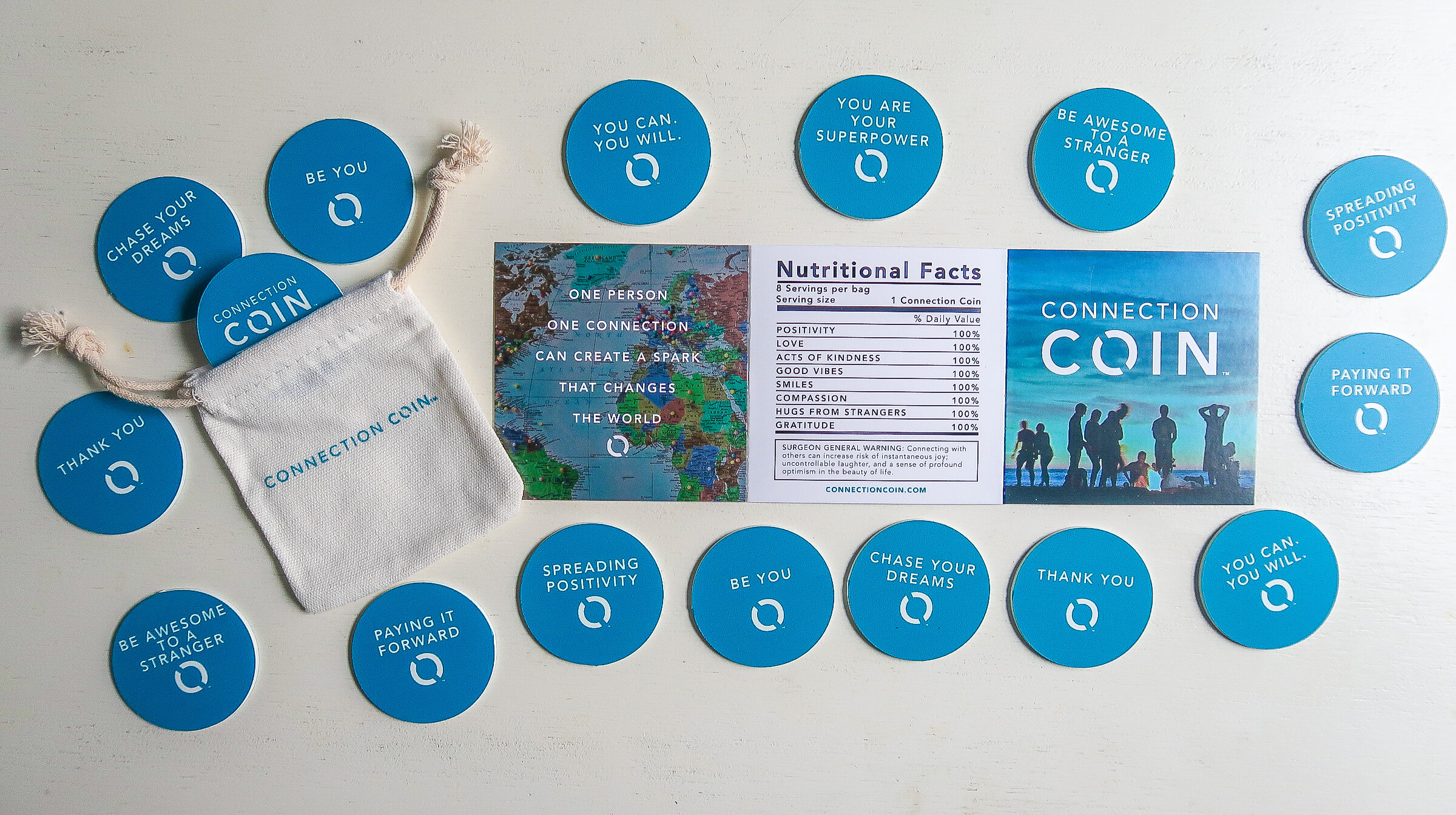
Digital Flourishing™ Across the Internet
🔍Discover the possibilities🙌 Participate in the #DigitalFlourishingChallenge #TogetherWeFlourish 🌍🎉
Find and Seek Positivity
Online, I seek out ________________________ to feel positive.
Find out how you can adjust your radar to find what sparks your positivity during these trying times.
Visit digitalflourishing.com to take the 2-minute #digitalflourishing quiz to receive your custom score and actionable tips.
“We are healing in layers and layers.
We are all in this together, and together we flourish.”
Digital Flourishing
Mental Health is one of the six pillars of Digital Flourishing.
Characteristics of optimal use include a sense of intention and control. Active rather than passive use. Refraining from negative social comparison and preventing fear of missing out.
Take the Digital Flourishing Survey to receive your personalized Digital Wellness score.
Resources
High digital flourishing in the domain of Digital Flourishing focuses on positive social comparison, intentional use, and conscious consumption.
Learn tips for each aspect of Digital Flourishing by exploring the Digital Wellness Toolkit for actionable practices to prioritize your wellness when using digital technology.
How are you feeling in this moment? What do you seek to find a feeling of hope, positivity, or joy?
Share your answer with #digitalflourishingchallenge ⬇️
🌊Create your ripple effect in the world.🌎
Accept the #meepchallenge to embrace your power. 🌟
What does stepping outside of your comfort zone look like?
Accept the #meepchallenge to embrace your power. 🌟
What does stepping outside of your comfort zone look like?
Take action by sharing an act of kindness. Experience your ripple effect.🌊
Learn the positive impact of sharing your light by listening to real talk with connection coin.
Podcast guest, Court Creeden shares how a random act of kindness evolved into a tool that bridges in-person connection with mindful technology.
Physical coins have phrases such as ‘Spreading Positivity, Paying it Forward, and Be Awesome to a Stranger’
There is a unique code for each connection coin that recipients register online at www.connectioncoin.com to track the lasting impact of their kind gesture.
🎧 Listen to real talk with connection coin learn about the impact YOU can create around the globe by connecting with others. 🌍
Share your #meepchallenge experience by tagging #connectioncoin🔵
natural healing
Kick-start your natural healing journey with the Prove It Challenge.
Evolving well-care starts with ourselves.
One cleansing breathe can return us to the present moment.
Everyone has the right to thrive.
To live a life of energy, meaning, and purpose.
Together, we're on a mission to change health care into well care.
Well care is a transformational approach to enhance your wellbeing.
Led by pentathlete and Beijing Games competitor Eli Bremer, the Shaklee Pure Performance Team is an amazing group of world-class athletes that has been hand-picked from a variety of highly competitive sports.
They represent our long-time commitment to creating 100% safe, pure, and effective nutrition that gives athletes the healthy edge they need to win at the highest levels of competition. These elite athletes have the most stringent anti-doping regulations in sports, so what they put into their bodies is critically important to them. To ensure they’re not only getting the performance and efficacy they need to compete, but also guaranteed quality and purity, these top athletes—who have already won a combined 146 gold, silver and bronze medals at the Summer and Winter Games—all choose to use Shaklee.
Empower Your Inner Olympian
Start by rebooting your routine
Take on a Personal Challenge to feel better in one week.
Join the movement of 2 million strong to claim your right to thrive.
“Together We Thrive - Let’s chat 1:1” - Jamie Rose
Take the first step. - Schedule real talk with Jamie Rose
Beyond Organic is our philosophy that Shaklee quality standards go beyond how and where an ingredient is grown.
We look to confirm the purity and potency of ingredients AFTER harvest to guarantee that the final finished product is free of hundreds of chemical contaminants.
Learn more about the The Shaklee Difference®
Contact me to discover more!
can you use social media like a buddha?
When faced with difficult circumstances, don’t recreate more discomfort. Click to learn how to create digital boundaries.
I admit it, there are times I use social media fill up the empty parts of my day. Whether it's in a waiting room, in line at the grocery store, or laying in bed to pass the time.
Sometimes, I use social media a little less innocently. I sometimes use social media to numb my own discomfort. When i'm stressed out about school work, in an uncomfortable social situation, or adjusting to change.
Over time I've noticed that when I reach for my phone after feeling uncomfortable or anxious, I get off the phone feeling 10x more anxious than I was before. We live in a world of immediate comfort; numbing ourselves with fast food, television, substances, party culture, hard work, and you guessed it, social media. Social media has created so many opportunities, but when used unconsciously, it can also have detrimental effects, many of which have been seen in scientific studies.
My university has a ‘trimester like’ schedule, so my winter break is actually a month and a half long, almost like a summer vacation. Although it might seem nice having a long break, I admit that I’m in emotional limbo for almost half of it. I’ve never ever been good with change, so half my break is usually spent adjusting to life back at home. I get used to living with my family again, working, seeing the people in my hometown, etc. then I head back to college and have to do it all over again. Once I’m in the swing of things I feel great, but when i'm in that limbo phase, I deal with a lot of discomfort.
This past break I had a remote internship 3 days a week, worked a few part-time jobs, started writing an EP, and spent time with family and friends, but I noticed whenever I had time to relax, discomfort would settle in.
This break especially, I noticed when I felt uncomfortable I was always going to my phone. Checking Instagram, Facebook, Snapchat, etc. After going on these social apps for a while I'd start to hear negative comments in my head like..
“this person is accomplishing more than you”
“you’re just so behind”
“you need to get more things like that”
“you need to make more posts like that”
These are some things I normally don't think to myself.
I was experiencing so much anxiety. More than I had in a long time.
So, I decided to pick up a book from my bookshelf called The Practical Neuroscience of Buddha’s Brain by Rick Hanson. I bought the book when I was younger, but wasn't able to understand it at the time. After hearing hearing an overly anxious and emotional script in my head, I thought I needed some type of rationale to counteract it. What better rationale than The Buddha?
I began reading and loved it immediately. The author started the first chapter by explaining how our neurons fire when we’re upset, and how each part of the brain reacts to emotions. He went on to describe what he calls the first darts and second darts. Here’s how he explains them:
“To borrow an expression from Buddha, inescapable physical or mental discomfort is the “first dart” of existence. As long as you live and love, some of those darts will come your way.”
So, in other words, “first darts” are the upsetting, sometimes inescapable things that happen in our lives. As long as we're taking risks and living our lives, these things will happen. Someone rear ends your car, you fail a test, your significant other breaks up with you, or life changes in some way. Hanson then says this:
“First darts are unpleasant to be sure. But then we add our reactions to them. These reactions are ‘second darts’- the ones we throw at ourselves.”
Second darts are the reactions we have to our first darts. For example, maybe failing a test is the first dart; an unpleasant, not so happy experience. Your second dart can be either positive or negative. You might look down on yourself and call yourself stupid, or you could appreciate that you tried your hardest, and decide to give it your best shot next time.
The most important thing in this equation, is the moment between your first and second dart, which can be a moment of either consciousness, or unconsciousness. After the first dart hits, are you choosing your reaction?
“Over time, through training and shaping your mind and brain, you can even change what arises, increasing what’s positive and decreasing what’s negative.”
The concept of the first dart and second dart made me think about my recent use of social media. Anytime I was dealing with discomfort from the change I was experiencing (the first dart), I responded to it with social media to numb my pain and then started comparing myself to others (negative second dart).
Hanson then explained my favorite concept of all: the 4 levels for consciousness in choosing your second dart. Here’s how he explains the levels and how I see them in regards to social media.
“As you deal with different issues on your path of awakening, you’ll repeatedly encounter these stages of growth”
Stage One- You’re caught in a second dart reaction and don’t even realize it.
Social Media Example- You feel discomfort, and it continues as you pick up your phone, scroll through social media, and compare yourself to others. This leaves you in a state of dissatisfaction, anxiety, and low self-esteem.
Stage Two- You realize you’ve been hijacked by greed or hatred (in the broadest sense), but cannot help yourself: internally you’re screaming.
Social Media Example- You feel the discomfort, but still resort to social media to numb it. You recognize that you’re doing something out of boredom/sadness/insecurity/anxiety, but you just can’t help it.
Stage Three- Some aspect of a reaction arises, but you don’t act it out.
Social Media Example- You recognize the feeling of discomfort, but before you reach for your phone, you sit with the feeling and remind yourself that you have the ability to comfort yourself.
Stage Four- The reaction doesn’t even come up, and sometimes you forget you ever had the issue.
Social Media Example- When discomfort comes up, you no longer feel the need to reach for your phone. You sit with your feelings, understand that they are just feelings, and avoid further discomfort and anxiety by scrolling through social media.
These stages are a series of training your mind. Although it might seem like a daunting task, it's extremely effective. When it feels impossible, there are different resources to help you. Recently, I’ve been using the Screen Time feature on the iPhone to track and reduce the amount of time that I spend on social apps. You can even set a time of day you spend off-screen. When opening the apps, a small hourglass will come up reminding you that you’re having off-screen time or that you’ve reached your time limit for the day.
Using this “dart” mentality can really improve all areas of your life. When faced with difficult circumstances, don’t recreate more discomfort. Just remember how The Buddha did it!























